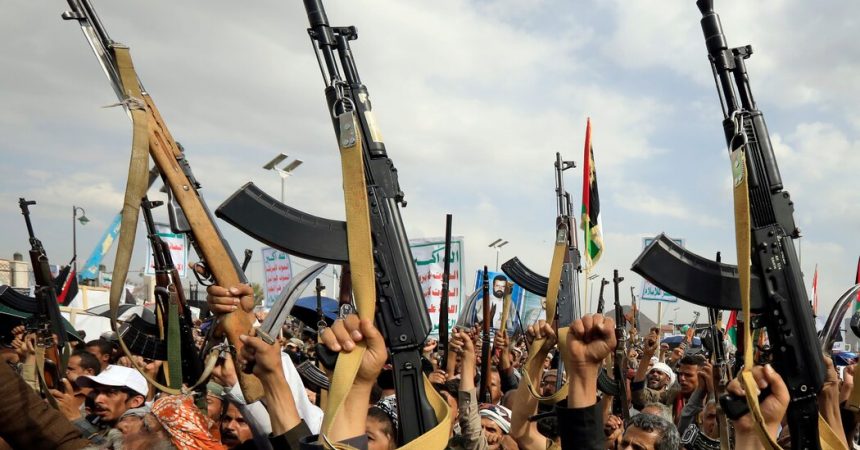The United States imposed new sanctions on Monday aimed at cutting off weapons, supplies and funding to the Iranian-backed Houthis, who control much of Yemen and have been striking commercial ships in the Red Sea to show support for Palestinians in Gaza.
“The United States remains resolved to use the full range of our tools to halt the flow of military-grade materials and funds from commodities sales that enable these destabilizing terrorist activities,” Brian E. Nelson, the Treasury Department’s under secretary for terrorism and financial intelligence, said in a statement.
The sanctions were placed on two individuals and five entities that have facilitated weapons procurement for the Houthis, as well as an individual, a company and a vessel that have helped with commodities shipments, “the sale of which provides an important funding stream to the Houthis that aids in their weapons procurement,” the Treasury statement said.
Several of the designated entities are based in China or procure materials for weapons from companies in China, according to the Treasury.
The U.S. action comes as the Houthis have recently stepped up attacks on the ships. The U.S. Navy has responded with retaliatory military actions.
The U.S. Central Command said in a post on social media on Monday evening that it had, in the past 24 hours, destroyed four Houthi radars and one maritime drone in Houthi-controlled areas of Yemen and destroyed an aerial drone over the Red Sea. On Sunday, the Navy said it had airlifted the crew from a Greek merchant vessel that was attacked in the Red Sea last week. The U.S. military launched airstrikes on Thursday that destroyed three anti-ship cruise missile launchers in Houthi-controlled Yemen, according to the Central Command.
Sabrina Singh, a Pentagon spokeswoman, said on Monday that since mid-November, the Houthis, had launched about 190 attacks on ships sailing through the Red Sea and the Suez Canal, a crucial shipping route through which 12 percent of world trade passes. The Houthis, the de facto government in northern Yemen, have built their ideology around opposition to Israel and the United States, seeing themselves as part of the Iranian-led “axis of resistance,” along with Hamas in the Gaza Strip and Hezbollah in Lebanon.
Their leaders often draw parallels between the American-made bombs used to pummel their forces in Yemen and the arms sent to Israel that are used in Gaza.
“The Houthis’ continued, indiscriminate, and reckless attacks against unarmed commercial vessels are made possible by their access to key components necessary for the production of their missiles” and drones, Mr. Nelson said.
The Treasury’s statement accused the Houthis of “killing innocent civilians, causing severe damage to commercial ships, and threatening global freedom of navigation.”






